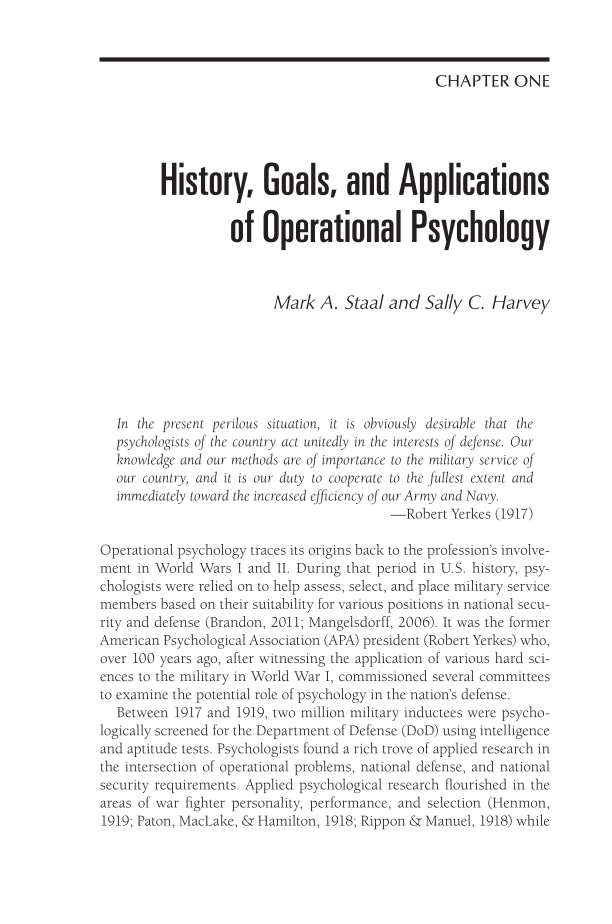CHAPTER ONE History, Goals, and Applications of Operational Psychology Mark A. Staal and Sally C. Harvey In the present perilous situation, it is obviously desirable that the psychologists of the country act unitedly in the interests of defense. Our knowledge and our methods are of importance to the military service of our country, and it is our duty to cooperate to the fullest extent and immediately toward the increased efficiency of our Army and Navy. —Robert Yerkes (1917) Operational psychology traces its origins back to the profession’s involve- ment in World Wars I and II. During that period in U.S. history, psy- chologists were relied on to help assess, select, and place military service members based on their suitability for various positions in national secu- rity and defense (Brandon, 2011 Mangelsdorff, 2006). It was the former American Psychological Association (APA) president (Robert Yerkes) who, over 100 years ago, after witnessing the application of various hard sci- ences to the military in World War I, commissioned several committees to examine the potential role of psychology in the nation’s defense. Between 1917 and 1919, two million military inductees were psycho- logically screened for the Department of Defense (DoD) using intelligence and aptitude tests. Psychologists found a rich trove of applied research in the intersection of operational problems, national defense, and national security requirements. Applied psychological research flourished in the areas of war fighter personality, performance, and selection (Henmon, 1919 Paton, MacLake, & Hamilton, 1918 Rippon & Manuel, 1918) while
Document Details My Account Print multiple pages
Print
You have printed 0 times in the last 24 hours.
Your print count will reset on at .
You may print 0 more time(s) before then.
You may print a maximum of 0 pages at a time.











































































































































































































































































































































































































